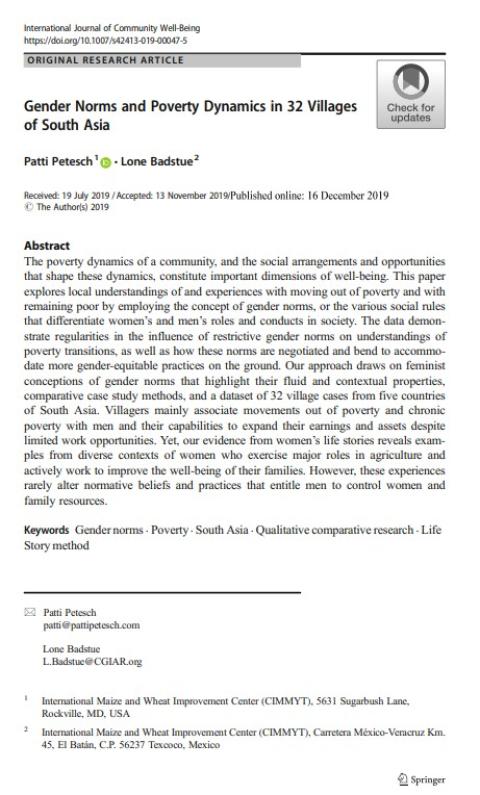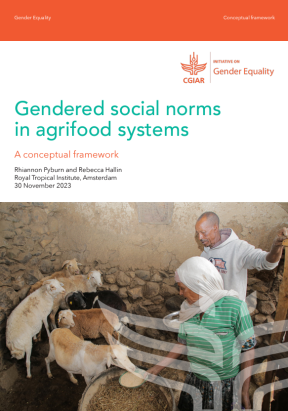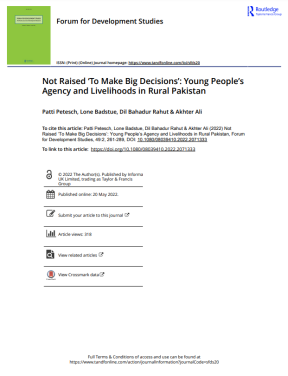- Journal article
- 16 December 2019
Gender norms and poverty dynamics in 32 villages of South Asia
- Author: Patti Petesch, Lone Badstue
- Published by: International Journal of Community Well-Being

Abstract
The poverty dynamics of a community, and the social arrangements and opportunities that shape these dynamics, constitute important dimensions of well-being. This paper explores local understandings of and experiences with moving out of poverty and with remaining poor by employing the concept of gender norms, or the various social rules that differentiate women’s and men’s roles and conducts in society. The data demonstrate regularities in the influence of restrictive gender norms on understandings of poverty transitions, as well as how these norms are negotiated and bend to accommodate more gender-equitable practices on the ground. Our approach draws on feminist conceptions of gender norms that highlight their fluid and contextual properties, comparative case study methods, and a dataset of 32 village cases from five countries of South Asia. Villagers mainly associate movements out of poverty and chronic poverty with men and their capabilities to expand their earnings and assets despite limited work opportunities. Yet, our evidence from women’s life stories reveals examples from diverse contexts of women who exercise major roles in agriculture and actively work to improve the well-being of their families. However, these experiences rarely alter normative beliefs and practices that entitle men to control women and family resources.
- Tags:
- Agriculture, Economic empowerment, Theory
- Countries / Regions:
- South Asia
Related resources
Report
1 November 2023

Toolkit
2 October 2023

Journal article
20 June 2022
